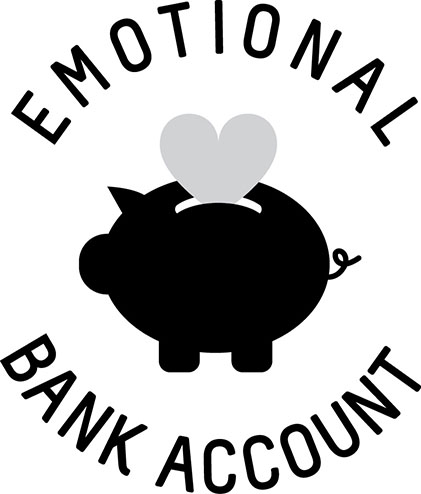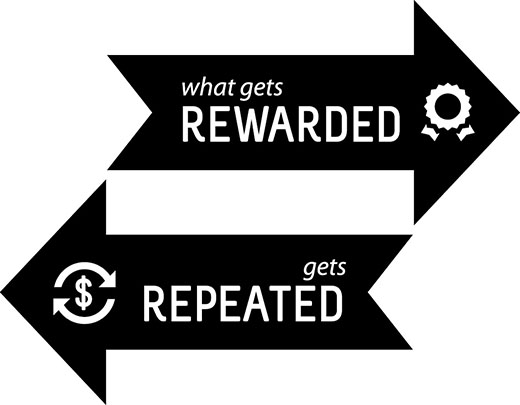CHAPTER 12
Driving emotions
As I mentioned in the previous chapter, we all experience many different emotions. We feel hurt, we feel love, we feel joy, we feel sadness. Depending on what research you read, these could number up to 135 or 177, with eight so-called core emotions. So for this purpose we are simply going to say there are many to choose from. Some people feel a hundred of them in a week; others no more than 10 in a lifetime. Most of the time, however, you and I will experience up to three driving emotions that sit high above all the other emotions. Our emotional hierarchy looks like this … These three driving emotions animate us, motivate us and connect us to our goal by propelling us towards the results we want and desire. Whether it is acceptance or love or acknowledgement, these are the emotions we crave, sometimes to our own detriment. Whatever driving emotion propels you to be the best you that you can be, you need to combine it with high self-confidence, self-worth and self-belief. Over the next couple of chapters I will show you a simple way to determine what is truly important for you to feel, have and do. These are the emotions that you experience day by day and week by week. They define your natural persona, whether that is happy, organised, caring, conscious or focused. Sometimes they are positive and uplifting for your spirit and soul; at other times they are the emotions that undo you, the negative emotions that bring out the worst in you. You know when it is happening. You may be under pressure, unsure, tired or committed to something you don’t believe in. Unfortunately it is hard to stop these emotions from coming to the surface. These are all the rest of the hundred-plus emotions you may experience. Maybe you experience some of them only once, and maybe you never want to repeat the experience! They can be positive or negative, and some of these emotions may be ‘out of character’ for you. In his book The 7 Habits of Highly Effective People, the late Dr Stephen Covey developed the metaphor that we all have an emotional bank account with everyone we have a relationship with, an account based on trust rather than money. When we keep promises and commitments to them we make a deposit in their emotional bank account that builds trust, rapport and credibility. When we make a promise or commitment that we fail to keep, we make a withdrawal from their emotional bank account. The same is true of us as individuals: when we achieve a goal (which is a commitment to ourselves in the truest sense), we make a deposit in our personal emotional bank account, as it strengthens our driving emotions and gives us a feeling that is a reward in itself. The goal itself is not the only reward you can experience; neither is the feeling you have when you reach those milestones along the way. It is okay to reward yourself for achievement and effort. So often people set a goal, work their brains out to achieve the goal but then don’t celebrate. They just get back in the saddle and do it all over again, setting another goal, working their brains out to achieve it … you get the picture. The by-product of this is that sooner or later your subconscious asks itself, ‘Why am I doing this?’ That’s when you lose the motivation and drive you once had. You wonder why you are no longer energised by life or the task at hand. What is the opposite of this? You achieved something great three years ago and you are still celebrating, living off past glory. Yesterday’s hero! Time to get off it and get on with it! So take the time to celebrate, but don’t stay celebrating that achievement forever. What is an appropriate reward? It might be taking time out to do something you love to do, one of your passions. It could be a celebratory dinner. It could be taking time to reflect on what you have achieved and what you have learned along the way. It could be sharing your success with people who matter to you, or it could even be a physical reward or specific predetermined prize or gift. I often use this quote … People respond best to reward and recognition. Rewards along the way will bring out the best in you. More importantly, they will do so in a more consistent, sustainable and conscious way.

Your driving emotions
Your core emotions
Your general emotions


